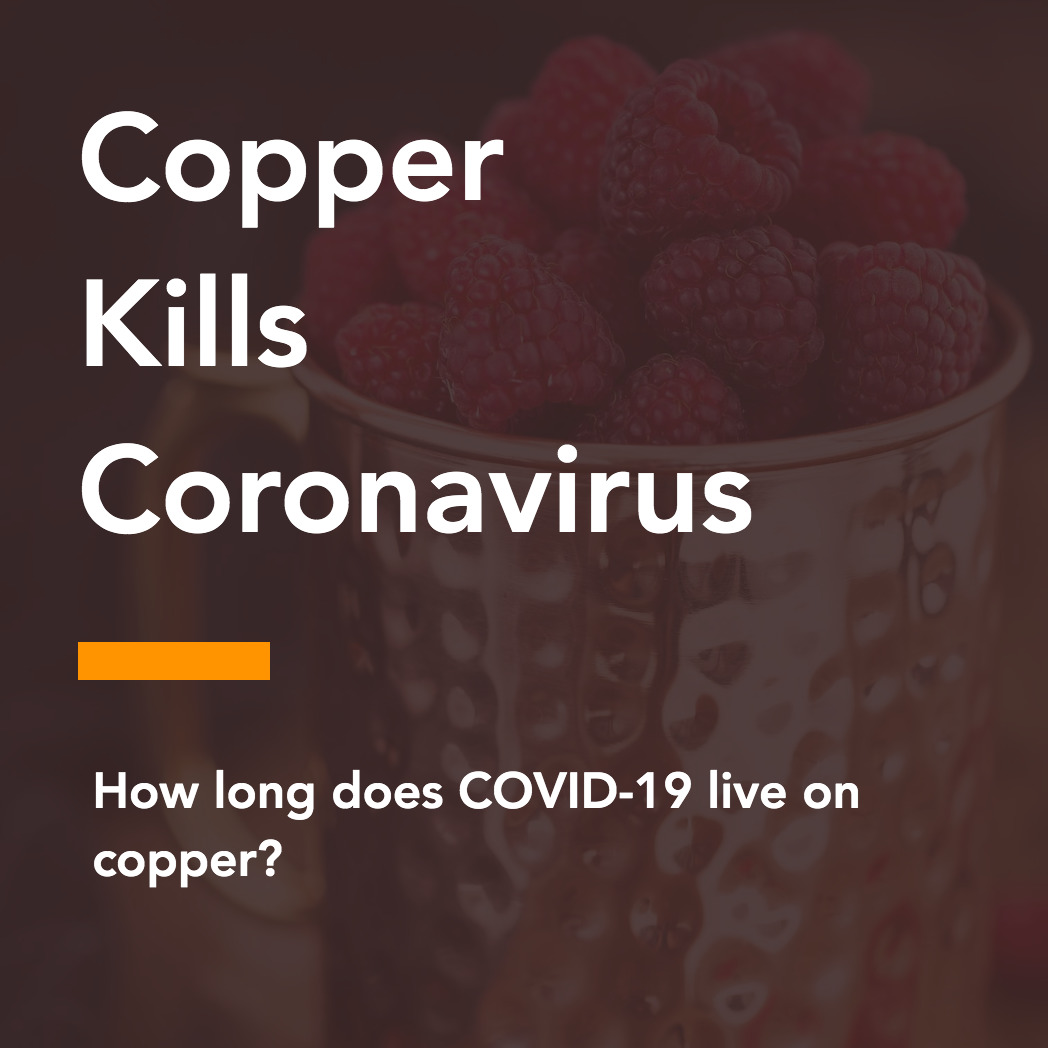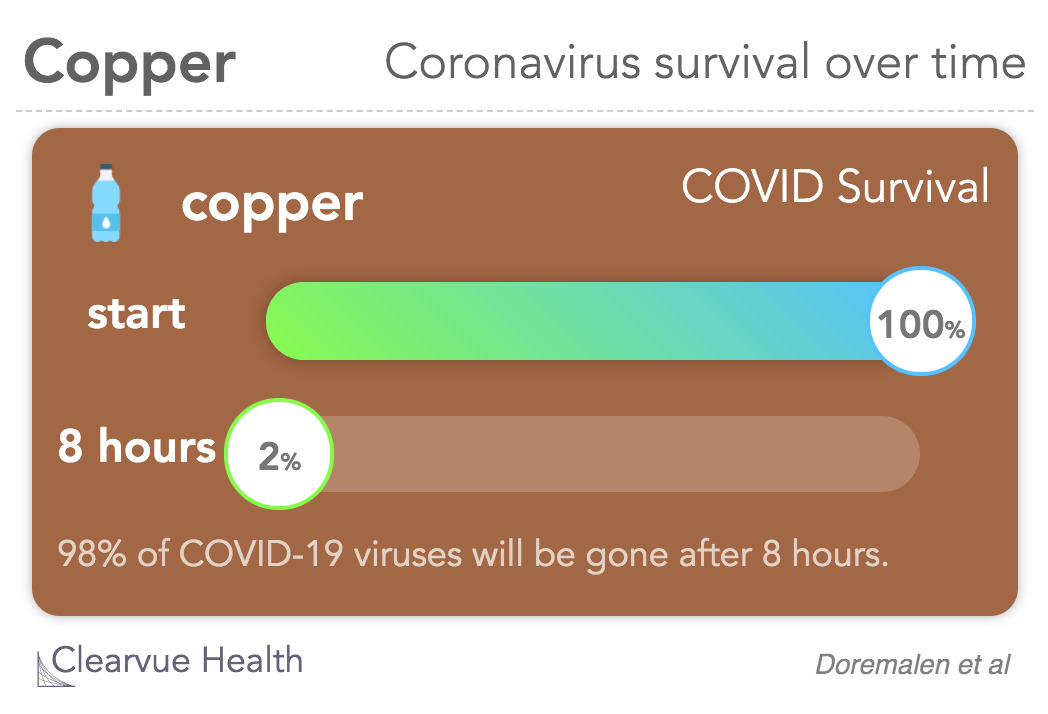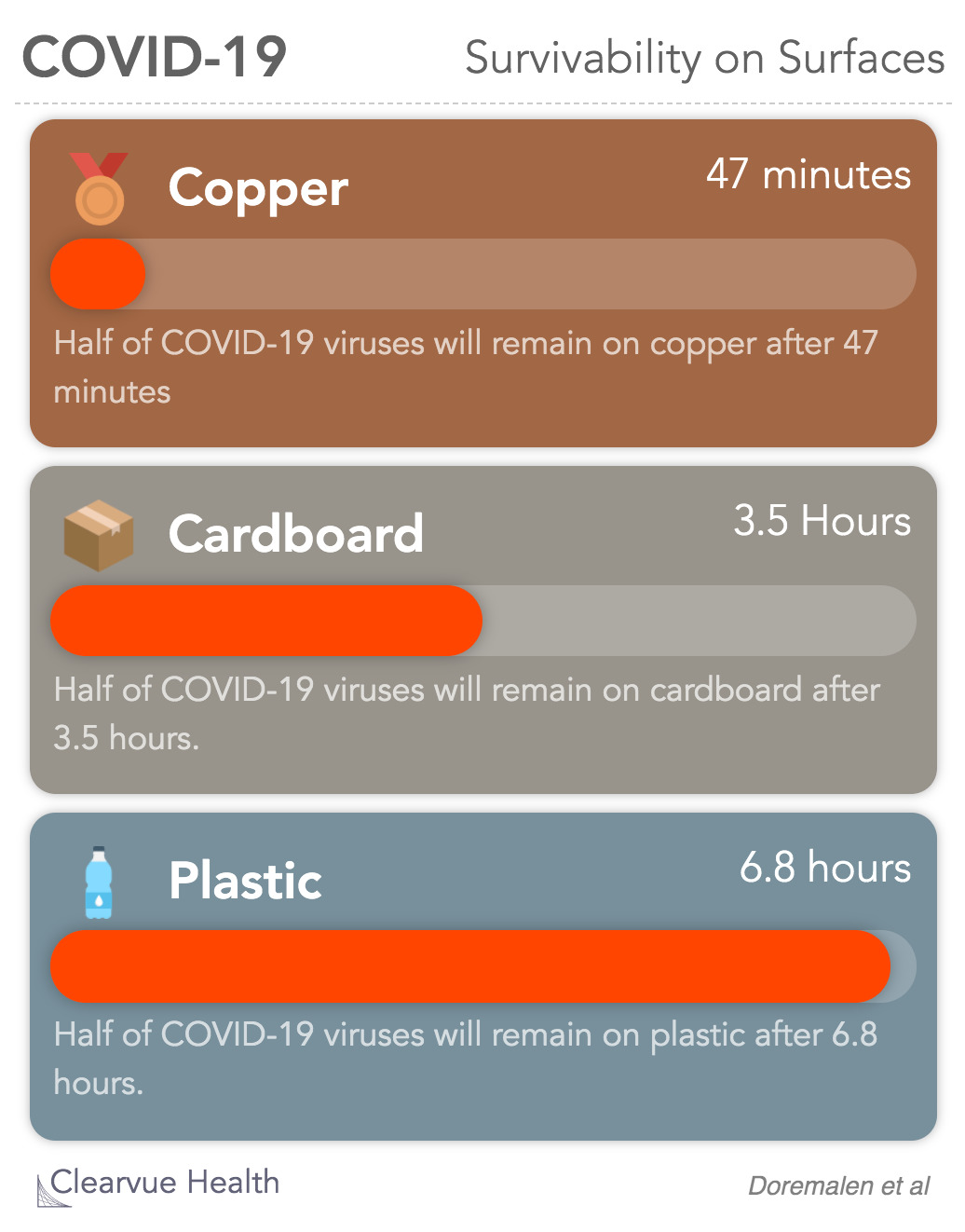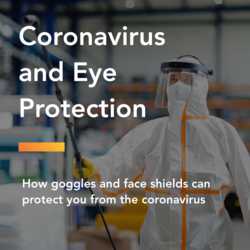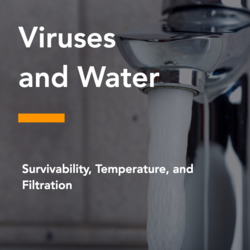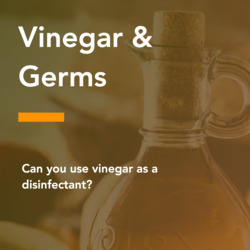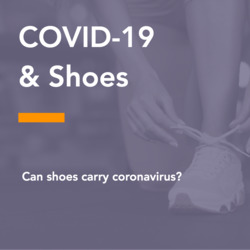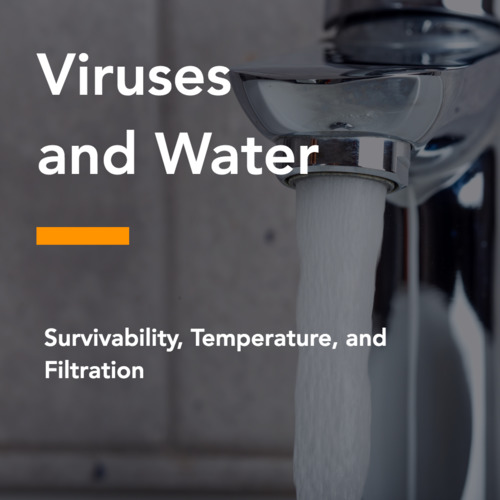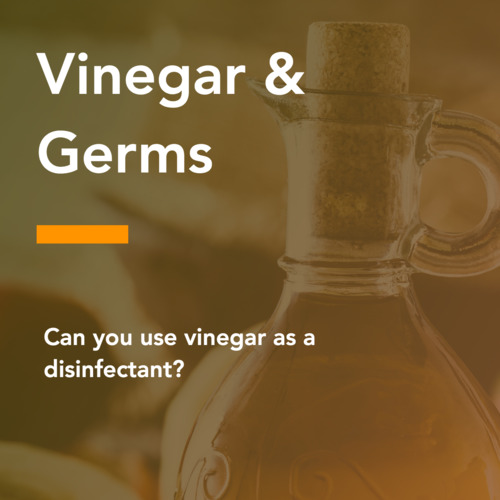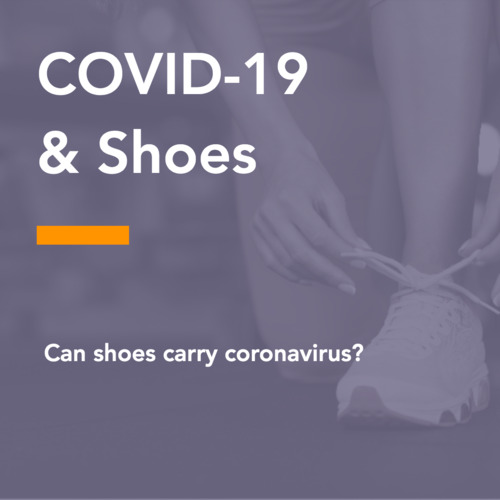A new study adds evidence that copper may be one of the best antimicrobial surfaces, particularly when it comes to coronaviruses.
Copper outperformed steel, cardboard, plastic, and even air in one experiment.
After 8 hours, one experiment published in the New England Journal of Medicine found that less than 2% of coronaviruses remained on a copper surface.
Scientists measured this by laying down a few drops of fluid containing COVID-19 viral particles.
They then collected samples at regular time points to measure how many viruses were still present.
By doing so, they were able to generate the model below:
The chart above compares the amount of COVID-19 viruses on copper and steel surfaces at several timepoints.
Copper is less hospitable than steel to COVID-19 viruses at each timepoint.
Copper vs Other Surfaces
Based on the chart above, you can see that COVID-19 lives longer on plastic than on other surfaces, including cardboard and steel.
Plastic forms a relatively hospitable environment for COVID-19. Fortunately, plastic tends to be easier to clean than cardboard.
Key Takeaways
This experiment shows that copper remains one of the most antimicrobial surfaces.
However, that doesn't mean it's sterile. A small amount of virus still remains for several hours after exposure.
It remains important to disinfect regularly, particularly on frequently touched surfaces,
Protect yourself by frequently washing your hands for at least 20 seconds or by using an alcohol based hand sanitizer.
Source: Aerosol and Surface Stability of SARS-CoV-2 as Compared with SARS-CoV-1
